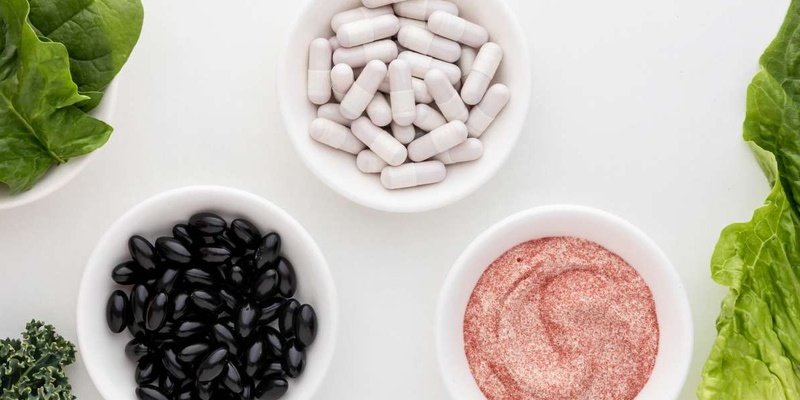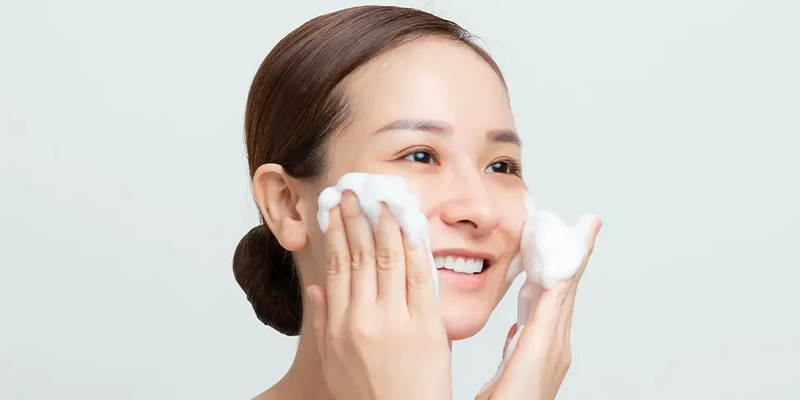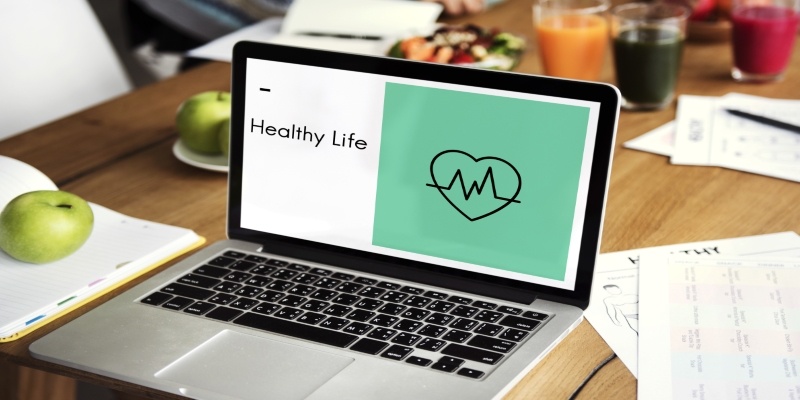Lutein is a kind of carotenoid, which we can describe as plant coloration. The main thing it's known for is helping keep eyes healthy. Many fruits and vegetables have lutein in them. It has lots of antioxidant properties that defend cells from harm coming from free radicals. This nutrient gathers mostly in the retina and helps to preserve our ability to see properly. Lutein is not made by the human body, so it's very important to get it from what we eat or take in supplement form. This article will talk about what lutein does that's good for us, how critical it is for keeping our eyes healthy, and the foods where this necessary nutrient can be found.
Lutein brings multiple health advantages, mainly due to its antioxidant capabilities. The gains go beyond just eye well-being, making lutein an important part of a nutritious food regime. Studies indicate that lutein could assist in lowering the threat of long-term illness by stabilizing free radicals and safeguarding cells from oxidative pressure. Research has shown that lutein can enhance the health of the skin by blocking damaging blue light and lessening inflammation, leading to stronger and healthier skin. Moreover, its properties against inflammation could assist in lowering chances for heart diseases, which underlines its wider influence on general well-being.
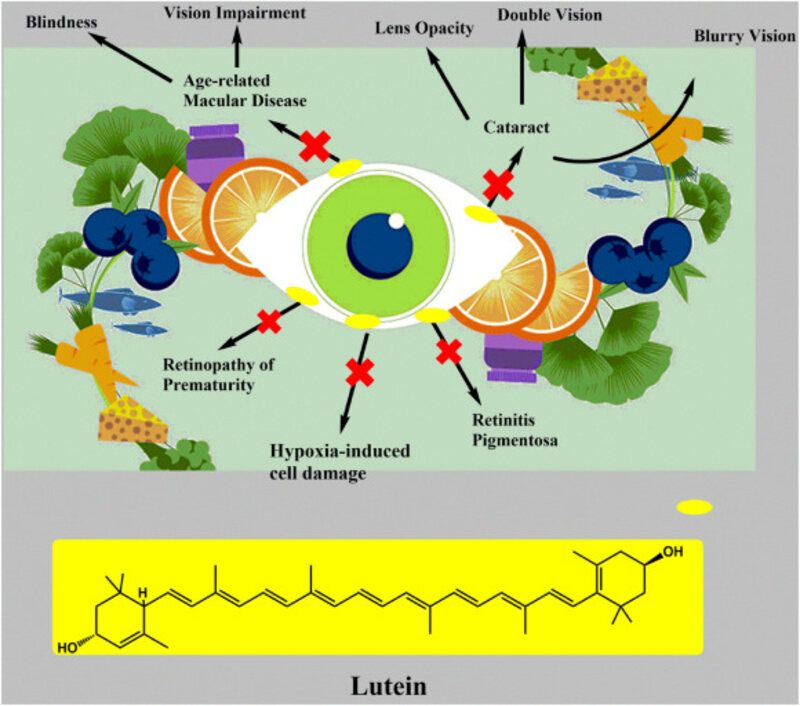
Besides guarding cells from harm, lutein is demonstrated to help brain functions notably in elder individuals. Some researches indicate that an increased amount of lutein in the brain relates to enhanced memory and faster processing speed, suggesting a possible shield against cognitive deterioration due to aging. The carotenoid's power to fight oxidative stress also aids in lessening the danger of enduring diseases like diabetes since oxidative damage has connections with insulin resistance and disturbed glucose control. In general, the antioxidant and anti-inflammatory impact of lutein not only promotes good eye health but also plays a significant role in overall wellness.
One big advantage of lutein is its good impact on the health of the eyes. People know it helps to save from age-related macular degeneration (AMD), a top reason for loss of vision in elderly people. Lutein works by blocking dangerous blue light and lessening oxidative stress within the retina. The guarding is very important because too much blue light, especially from electronic things, can make the retina hurt. Lutein also helps to see better and notice changes in light and dark more naturally which makes your eyes work well. If someone regularly eats food with lutein it will help keep their sight good for a long time.
Lutein also gives hope in averting cataracts, another frequent eye issue associated with older age. Cataracts transpire when proteins within the lens of our eyes deteriorate and accumulate together, resulting in obscured vision. Studies suggest that lutein, coupled with its carotenoid partner zeaxanthin, can decelerate the progression of cataracts by soaking up excess light and avoiding harm to the lens. Lutein's safeguarding impacts on the retina and lens emphasize its importance in preserving clear, good vision throughout one's life. This is particularly significant for those who are prone to eye-related illnesses.
To gain the advantages of lutein, it is crucial to include foods rich in lutein in your eating habits. Dark green leafy vegetables are some of the top providers of this nutrient. Vegetables like kale, spinach, and collard greens have a good quantity of lutein and can be simply added to multiple dishes. Other good sources are broccoli, peas, and Brussels sprouts. Fruits such as kiwi, grapes, and avocados have considerable amounts of lutein too. For people who like to snack, egg yolks are a great choice because they not only have lutein but also help absorb this carotenoid better due to the presence of fats in eggs. Putting different types of these foods into your everyday meals could aid in making sure you get enough lutein for the best health.
Besides fruits and vegetables, certain nuts and seeds can give you a bit of lutein too, serving as an easy-to-grab snack. For example, pistachios have some amount of lutein that adds to their appeal in our meals. The way we cook food may affect how much lutein is absorbed by the body. If you slightly steam or fry vegetables that are high in lutein, this can make the nutrient more readily available for your body to absorb compared to eating them without cooking. By changing your diet like this, it is simple for you to consume more lutein and enhance its positive effects.
Though it is best to get lutein from what we eat, some people may think about using supplements, especially if they do not get enough from their diet. Supplements of lutein can give a strong dose that could be good for those at risk of diseases in the eyes or with certain dietary rules. However, speaking with a health expert before starting any supplement use is very important because they can check individual requirements and suggest the right doses. You should also take into account that the beneficial impact of lutein supplements can change depending on how they are formulated and if there are additional nutrients present to help with absorption.
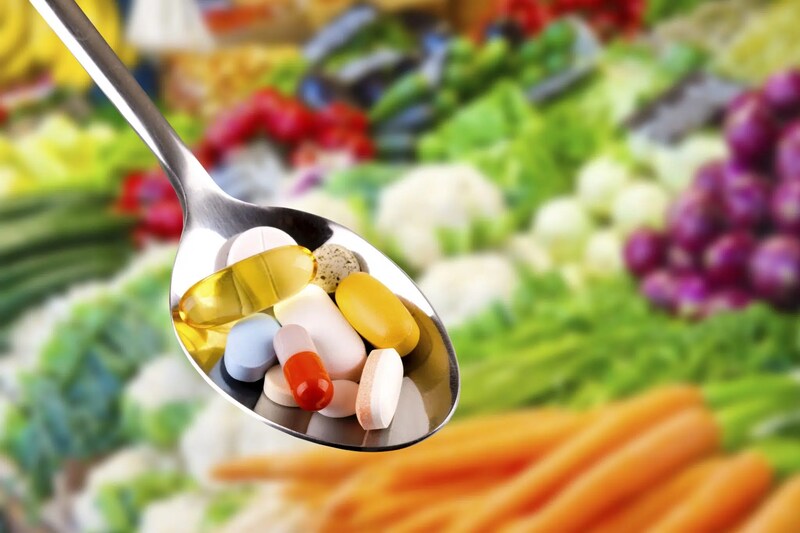
Study indicates that lutein supplements work best when consumed with healthy fats. As these fats improve the body's capability to take in this carotenoid, foods rich in lutein like egg yolks, already containing fat, are very easy for our bodies to use. Additionally, many times you will find lutein mixed with zeaxanthin - another type of carotenoid that collaborates well with it and helps keep eyes healthy. These thoughts bring out the significance of making sure that any extra nutrition regimen is customized to a person's unique food requirements and medical suggestions.
Lutein is usually thought safe for the majority of individuals when eating from food. But if you take too much supplement, there could be a problem of change in skin color called carotenemia that gives your skin a yellowish look. This situation doesn't harm and generally gets better by decreasing lutein consumption. Like every nutrient, balance is important. People who have particular health problems or are on medication need to talk about lutein supplements with their healthcare professionals for safety and effectiveness assurance.
Now, there is not any fixed maximum quantity for the consumption of lutein from food items because it is seen as harmless in big quantities if eaten through diet. However, one needs to be careful with supplements particularly when consuming more than the advised dosage. Even though side effects such as carotenemia are mostly harmless, people who have allergies to some elements present in these supplements must pay attention to their composition. Always choose a supplement from a reputable brand to avoid potential contaminants or allergens.
To end, lutein is an important nutrient that plays a key part in keeping the eye healthy and giving more health benefits. Putting many kinds of foods rich in lutein into your eating habits can help guard against oxidative stress, assist visual function, and maybe lower the chance of chronic diseases. Whether through natural food or added supplements, making sure you take enough lutein is needed for total good health. By knowing the significance of this nutrient and making knowledgeable food selections, people can greatly improve their health and life quality.


